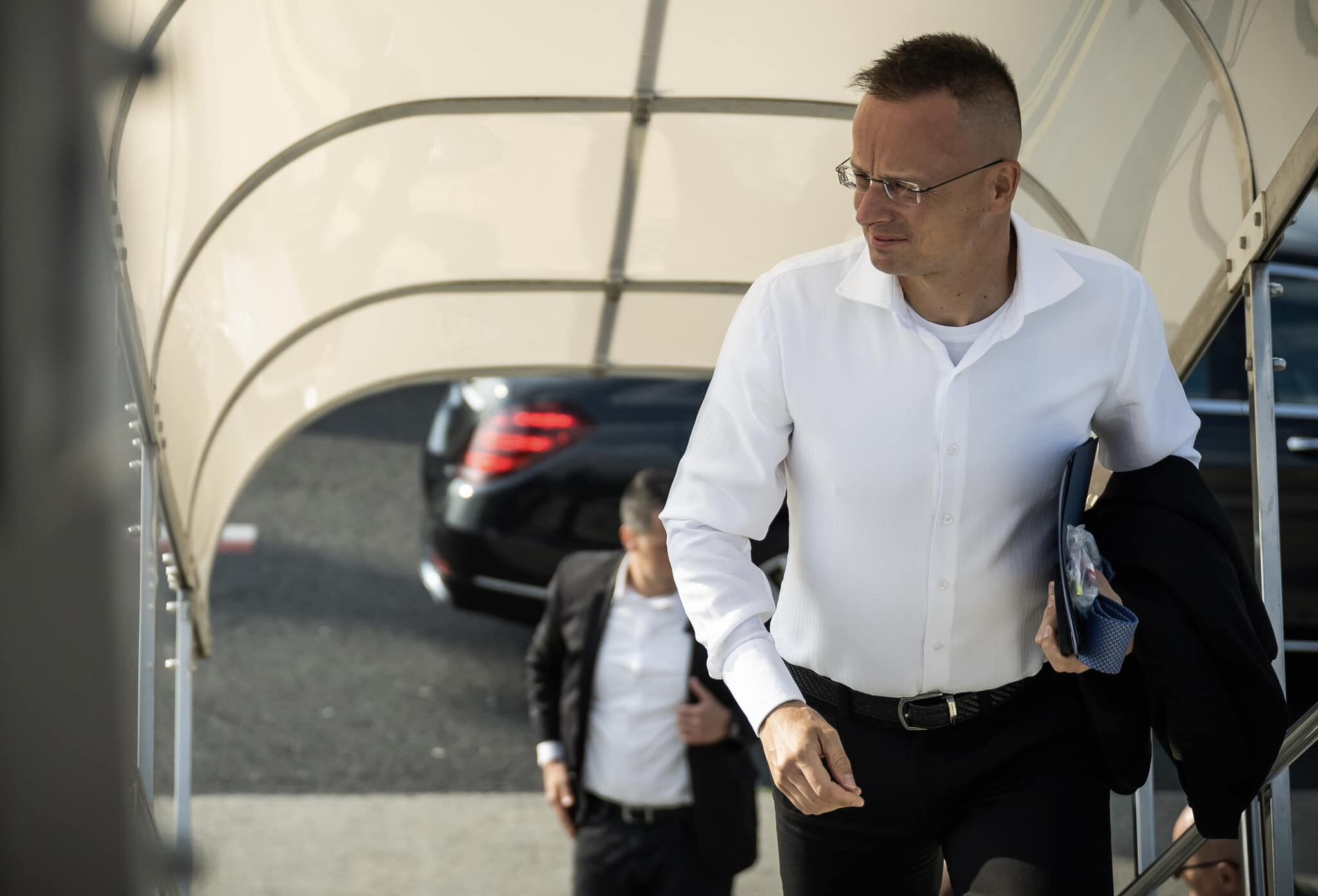Hungary wants LNG from Poland. Any action taken by Hungary to increase its energy independence from Russia should be viewed with optimism. But at the same time, these statements should be approached with caution, adopting the maxim „by the fruits you will know them”, writes Dominik Héjj, conributor to BiznesAlert.pl.
The head of Hungarian diplomats, Péter Szijjártó took part in the Economic Forum in Karpacz. After reaching the site, he posted an intriguing message on social media: „(…) soon live about the war, economy and cooperation of the Visegrad Four. Pay attention, it’s worth it.”
The „it” is the announcement of Polish-Hungarian energy cooperation. It is supposed to concern the possibility of buying LNG from the FSRU in Gdańsk. The Government Plenipotentiary for Strategic Energy Infrastrcuture, Anna Łukaszewska-Trzeciakowska revealed last Tuesday that talks on the topic were being held. The editor-in-chief of BiznesAlert.pl, Wojciech Jakóbik has reported on this.
On Wednesday (September 6), Péter Szijjártó met with Anna Moskwa, Mminister of Climate and Environment, in Karpacz. The parties initialed a preliminary political agreement on the deliveries. Commenting on them, the Hungarian minister said that the infrastructure in South-Eastern Europe does not have enough capacity to increase supplies. Meanwhile, in his opinion, the European Union is not willing to provide funding for this goal, so Hungary must consider the northern route. „The fact that Poland is building a new LNG terminal, and the natural gas pipeline systems of Poland and Slovakia have been connected, creates a good opportunity for this,” he said.
The head of the Hungarian diplomacy stressed that the opening of the capacity reservation procedure allows making such a booking for the next 5 years (the talks are conducted by the Hungarian company MVM). The LNG will be delivered via a new FSRU2, capable of processing 4.5 bcm of gas a year. Szijjártó did not reveal from which direction deliveries to the Polish port could be made. From the Polish perspective, it is clear that this will not be Russia. Szijjártó said in a video posted on social media that further talks will determine the volume of gas, its price, as well as technical conditions.
A breakthrough? Let’s not hold our breath. Any move by Hungary to increase its energy independence from Russia must be viewed with optimism. But at the same time, these statements should be approached with caution, adopting the maxim „by their fruits you will know them.” The issue is that the press release about the political agreement is written in the subjunctive, and this is very important for the Hungarian diplomacy.
It is a characteristic feature of Hungarian diplomacy that actions aimed at increasing independence from Russia are balanced out to some extent by deepening cooperation with Moscow. And so it was this time, because before minister Szijjártó flew to Poland, he had reported on the progress in Russia’s expanding the nuclear power plant in Paks. This time the announcement was about the beginning of earthworks to build the sixth (and the second new) reactor. Both new units with a total capacity of 2,400 MWe are expected to be commissioned in the next decade.
At the same time, it must be remembered that the problem is that diversification in Hungary does not mean abandoning Russian raw materials, but looking for other supplies. By default, Russia continues to be (at least for now, but for how long – it is not known) the main supplier of hydrocarbons. A declaration on maintaining the availability of Russian raw materials appears every time any other supply agreements are signed – for example, with Azerbaijan, Qatar or Turkey. And this is what Szijjártó himself talks about in the film from Karpacz. In recent weeks, much has been done in Budapest to ensure the liquidity of supplies from Russia if Ukraine were to terminate the contract for the transfer of gas through its territory.
During a panel in Karpacz the head of Hungarian diplomacy lamented that Hungary was forced to negotiate on gas and oil supplies from Russia, because the European Union did not want to help. It is worth rhetorically asking whether isn’t it Hungary that is one of the biggest opponents of the Energy Union, also opposing joint energy purchases, while stressing that the issues of energy should remain in the exclusive domain of the member states.
It is worth mentioning one more point in the minister’s statement. Szijjártó cites the entry of the Hungarian MOL concern into Poland, as well as the same step taken by Orlen in Hungary, as a positive development in the strengthening of energy cooperation. However, the problem is that so far, according to official data of the Polish company, its share in the Hungarian market is 2.4%. A look at a map with gas stations in Poland and Hungary clearly shows MOL’s better position. The situation is expected to improve in the coming months, when Orlen will take over more gas stations in Hungary.









